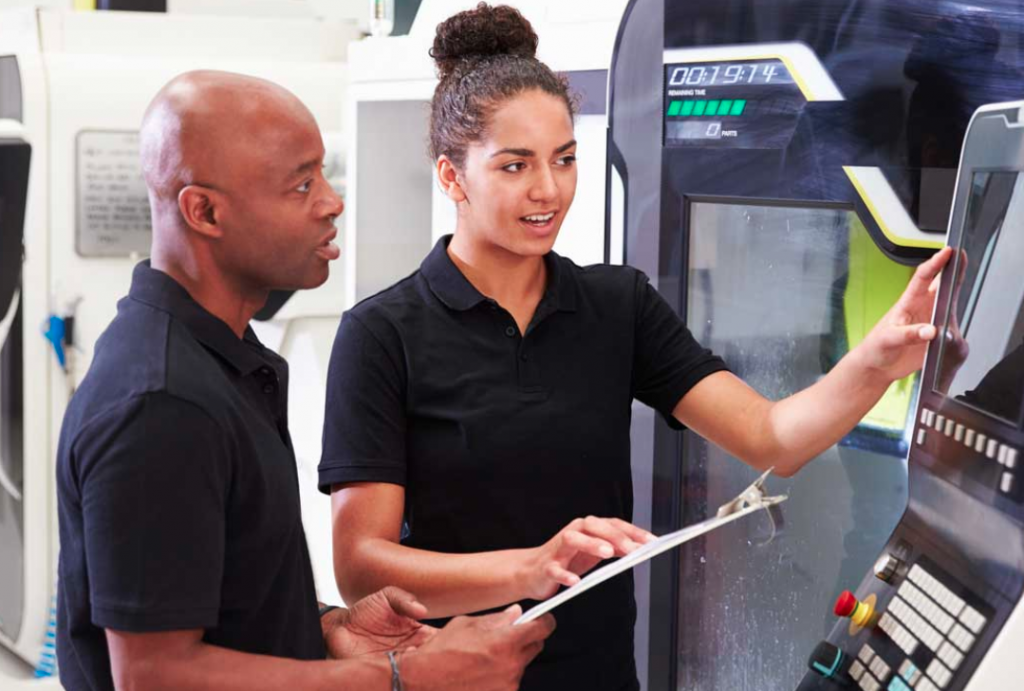Why the Future of Automation Is Human

This article is part of our Employee Experience Reimagined series, where we explore how company leaders are instrumental in building employee experience through technology.
When I first enrolled my daughter in preschool, I filled out her name at least fifty times. Hand cramps aside, what was even more agonizing was realizing I was in a 21st century cage: trapped by repetitive processes that didn’t need to be there.
Today, people often think technology will replace their jobs. I say, it will replace your hand cramps. Technology keeps us moving in a direction that constantly refines us for the better, and automation is a natural part of that process.
70% of business leaders spend about one to three hours per day on mundane tasks. via @workmarket
Meet automation: your own digital personal assistant
Automation stands for many things, but the way I like to look at it is using computers to take those dull, draining tasks off of our plates. Believe it or not, 70% of business leaders spend about one to three hours per day on mundane tasks. If you removed the tedious projects from their plates, it would free up an entire week and a half per month for managers and C-suite executives to focus on productivity.
Think of automation as your very own built-in personal assistant.
Think of automation as your very own built-in personal assistant. Automation can keep track of steps to onboard a new hire, notify managers when it’s time to approve a contract renewal, and even send out that very important appointment alert. Instead of setting personal reminders or going back-and-forth by email on all these tasks, each employee can save hundreds of hours a year — with less room for error — just by using automation technology.
Unlock the magic of happy employees
There are some things computers can never do. We, as humans, have the capacity for creative thought unparalleled by artificial intelligence. We design and we refine. We delight customers and build meaningful relationships.
Nearly 9 out of 10 executives at high-performing companies say that better employee experience directly leads to better customer experience.
That’s the beauty of automation technology: it allows us to thrive in our everyday work by using strengths that are distinctly human. And when people feel a sense of personal worth at work, it boosts performance. Human Resources and IT leaders can unlock creativity, strategic thinking, and empathetic problem-solving — skills unique to us — by setting up automated solutions for their teams.
Forbes Insights Research recently partnered with Salesforce to show how when employees are happier, it can have long-term returns on revenue. Nearly nine out of 10 executives at high-performing companies say better employee experience directly leads to better customer experience. These executives were ahead of the pack and had almost double the revenue growth as companies that do not value employee experience as highly.
To think that computers will take your job is an outdated perspective. Computers today are meant to free you from the hand-cramping work and instead amplify efficiency, insight, and skill sets that only you can bring to the table.
What the future of work looks like with automated processes
The possibilities are endless with automation. Not just for preschool applications, but every chance you get to make life easier. Think about a traditional pharmacy visit: you drive to the pharmacy, park, wait in line, check in with the pharmacist, pay, and drive back. It can take at least an hour. Now this about the digital pharmacy pick-up: with a few simple clicks online, medications arrive at your door, and refills are delivered again every 90 days. That’s the power of automation.
We are seeing a true need for automation even more so since the pandemic. For big businesses and small businesses alike, automation’s real-life benefits prove to be invaluable. We even had one customer process more loans in five weeks than their previous 14 years combined. Instead of needing to open 50,000 pieces of mail by hand, you go digital and speed up solutions. People can’t be in person in the same way anymore — but with automation, you can still be a hero to your customers.
Take chatbots, for example. They are available 24/7 at many companies, which means customers can get answers in real time. Instead of having to answer the same questions day-in, day-out at a call center, employees can work from home and be liberated by the bot to focus on innovation and future-forward projects.
Automation is for everyone
Automation doesn’t have to be intimidating. With time-saving tools, like Einstein Automate, employees across functions will feel like they have the ultimate personal assistant who does the behind-the-scenes work for them.
We are all crunched for time these days. If it’s not the barking pet nipping at your heels or the Zoom classroom crashing on your daughter’s plankton presentation, there’s always a distraction around the corner. Automation is in reach for teams who want to earn back their time and drive ROI. It’s a way for you to free yourself from all those unnecessary diversions, so you can have more energy and space to focus on decisions that really matter.
To learn more about how employee experience can drive results at your company:
- Visit the Employee Experience resource page
- Take control of your time with the power of automation
